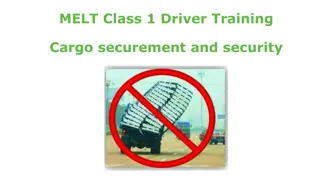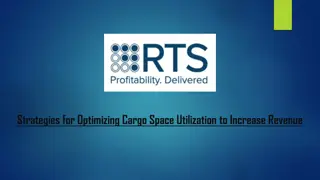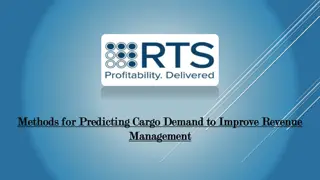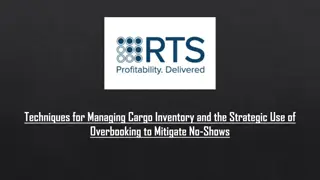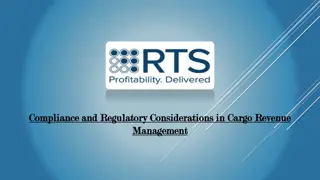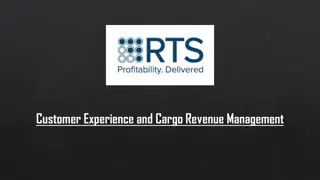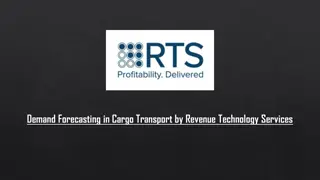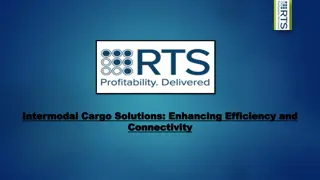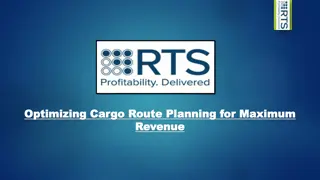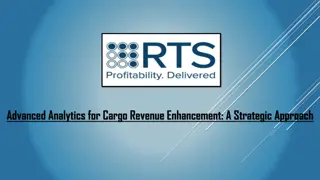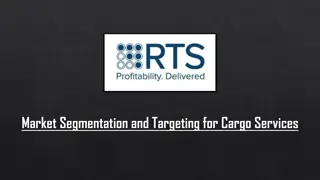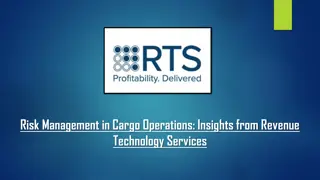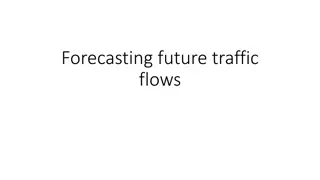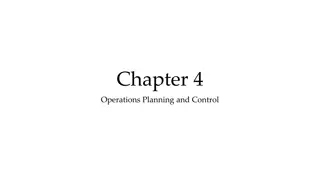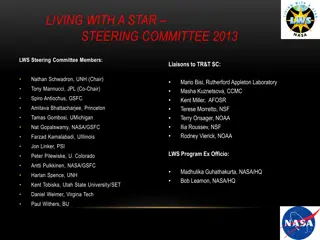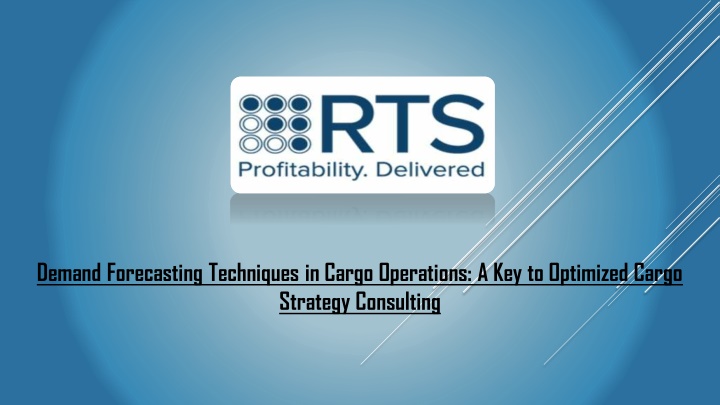
Demand Forecasting Techniques in Cargo Operations
In the dynamic world of cargo operations, effective demand forecasting is pivotal for streamlined logistics and maximized profitability. Revenue Technology Services (RTS), a leader in cargo strategy consulting, emphasizes the importance of leveraging sophisticated demand forecasting techniques to stay ahead in the competitive market. Let's explore the various techniques that are transforming cargo operations and how they can be integrated into a robust cargo strategy.
Download Presentation

Please find below an Image/Link to download the presentation.
The content on the website is provided AS IS for your information and personal use only. It may not be sold, licensed, or shared on other websites without obtaining consent from the author. If you encounter any issues during the download, it is possible that the publisher has removed the file from their server.
You are allowed to download the files provided on this website for personal or commercial use, subject to the condition that they are used lawfully. All files are the property of their respective owners.
The content on the website is provided AS IS for your information and personal use only. It may not be sold, licensed, or shared on other websites without obtaining consent from the author.
E N D
Presentation Transcript
Demand Forecasting Techniques in Cargo Operations: A Key to Optimized Cargo Strategy Consulting
In the dynamic world of cargo operations, effective demand forecasting is pivotal for streamlined logistics and maximized profitability. Revenue Technology Services (RTS), a leader in cargo strategy consulting, emphasizes the importance of leveraging sophisticated demand forecasting techniques to stay ahead in the competitive market. Let's explore the various techniques that are transforming cargo operations and how they can be integrated into a robust cargo strategy.
1. Historical Data Analysis One of the foundational techniques in demand forecasting is historical data analysis. By examining past shipment volumes, trends, and seasonal patterns, cargo operators can predict future demand with a fair degree of accuracy. RTS leverages advanced analytical tools to sift through extensive historical data, identifying recurring patterns and anomalies. This method helps in creating a baseline forecast which can be adjusted for other influencing factors. 2. Market Analysis and Economic Indicators Understanding the broader economic environment is crucial for accurate demand forecasting. RTS incorporates market analysis and economic indicators such as GDP growth rates, trade tariffs, and fuel prices into their forecasting models. By aligning cargo operations with economic trends, businesses can better anticipate changes in demand and adjust their strategies accordingly. This holistic approach ensures that forecasts are not only based on internal data but also reflect external market conditions. 3. Machine Learning and AI The integration of machine learning and artificial intelligence has revolutionized demand forecasting in cargo operations. These technologies can process vast amounts of data and identify complex patterns that human analysts might overlook. RTS utilizes AI- driven models to enhance the accuracy of their forecasts. These models can continuously learn and adapt to new data, providing real-time insights and predictions. This capability is particularly useful in dealing with sudden market changes and unforeseen disruptions.
4. Customer Behavior Analysis Another innovative technique employed by RTS is customer behavior analysis. By studying the booking patterns, preferences, and behaviors of customers, RTS can predict future demand more precisely. This method involves analyzing data from various touchpoints, including online bookings, customer inquiries, and past shipment records. Understanding customer behavior allows cargo operators to tailor their services and improve customer satisfaction while optimizing cargo loads. 5. Scenario Planning and Simulation Scenario planning and simulation involve creating multiple potential future scenarios based on different variables such as economic shifts, policy changes, and technological advancements. RTS uses sophisticated simulation tools to model these scenarios and their impact on cargo demand. This proactive approach helps businesses prepare for various contingencies, ensuring they are not caught off guard by unexpected changes in the market.
Conclusion Demand forecasting is an indispensable component of cargo strategy consulting, enabling businesses to navigate the complexities of cargo operations with precision and foresight. Revenue Technology Services employs a blend of historical data analysis, market insights, AI, customer behavior analysis, and scenario planning to deliver comprehensive and accurate forecasts. By integrating these techniques, cargo operators can optimize their operations, enhance customer satisfaction, and achieve sustainable growth in an ever-evolving market. Incorporating these advanced demand forecasting techniques into cargo strategy consultingnot only drives efficiency but also provides a competitive edge, ensuring that businesses are well-equipped to meet future challenges and opportunities.




